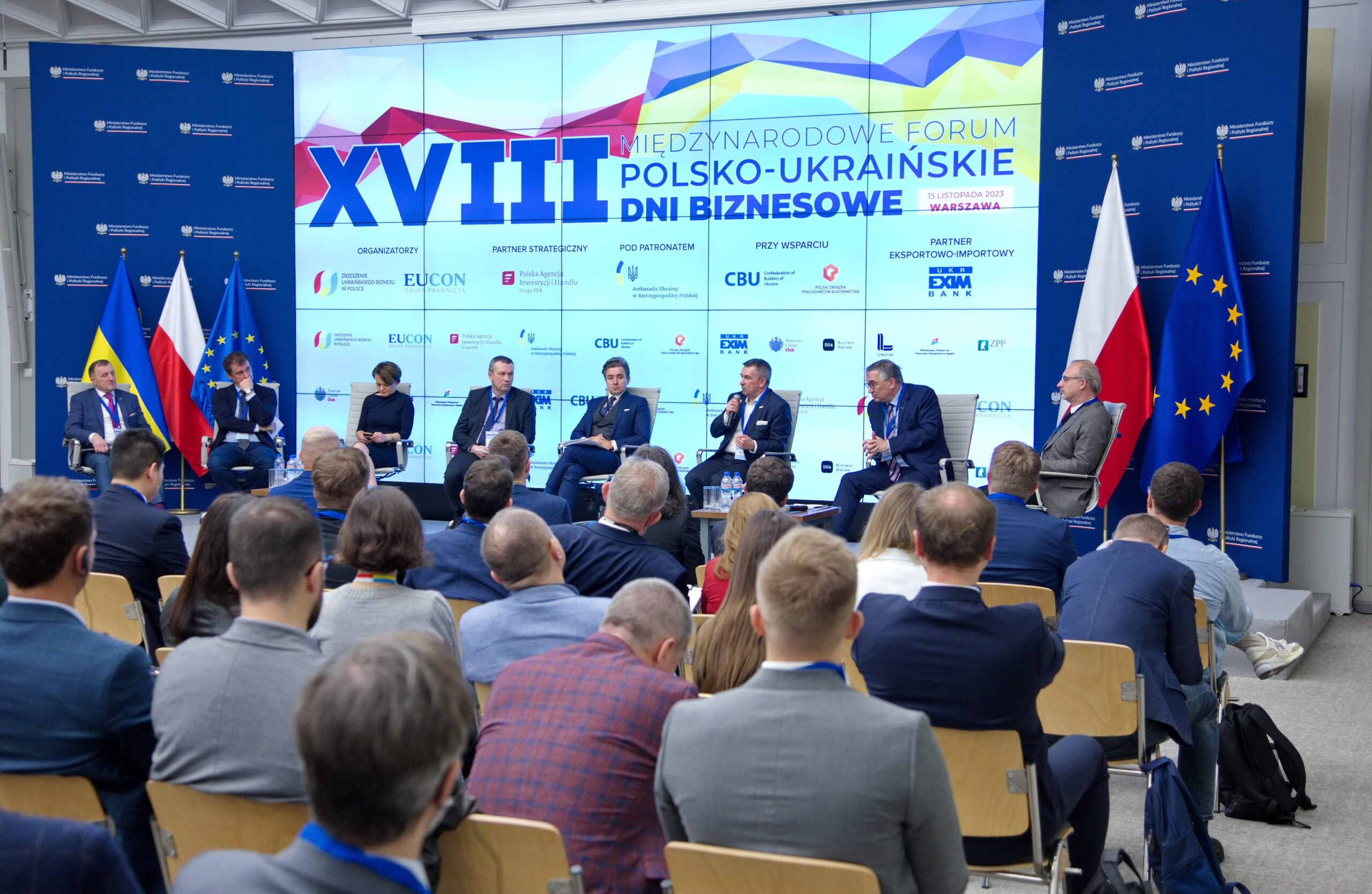
Once again, Warsaw became the epicentre of the consolidation of the Polish-Ukrainian business community: more than 130 participants and around 30 speakers met in one place to discuss the possibilities of attracting investment for the reconstruction of Ukraine and to look for new horizons of cooperation in the Ukraine-Poland context.
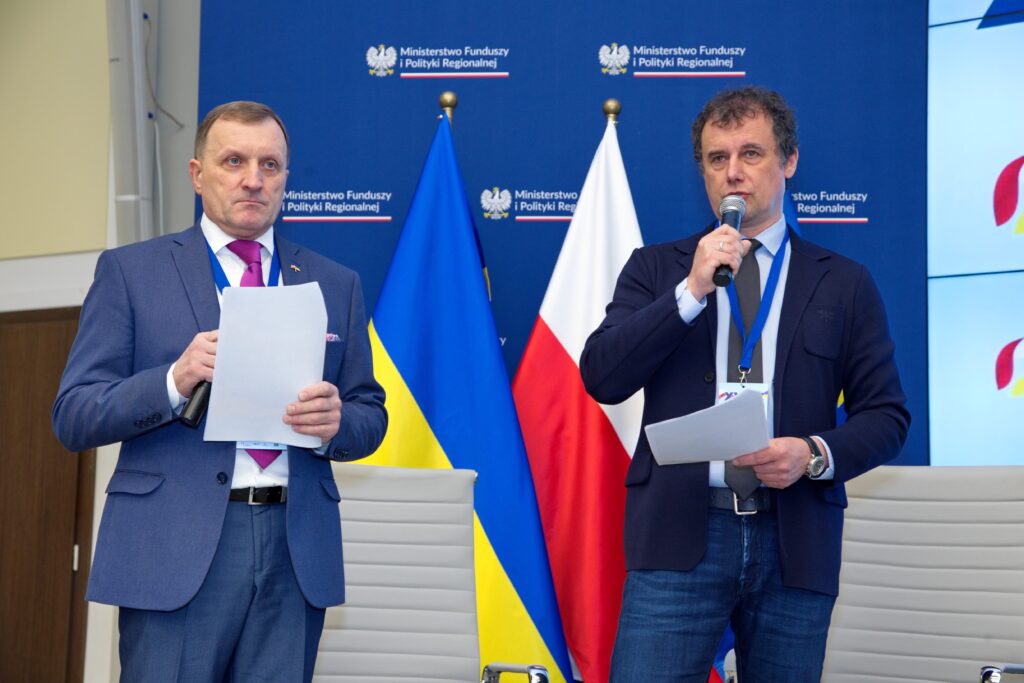
The forum was opened by the moderators of the first discussion panel: Yaroslav Romanchuk President of the Management Board of the Ukrainian Business Association in Poland, Managing Partner of EUCON Legal Group, and Ireneusz Derek, Chairman of the Council of the Ukrainian Business Association in Poland, Member of the National Investment Council to the President of Ukraine.
During the first discussion panel, which was traditionally dedicated to Polish-Ukrainian cooperation in trade and economy, the participants discussed the problems that arose in the partnership between Ukraine and Poland, they expressed their views on the situation on the Polish-Ukrainian border and looked for solutions to overcome any misunderstandings and ways to improve partnership relations.
In particular, Yaroslav Romanchuk noted that the Association of Ukrainian Business in Poland proposed to the President of the Republic of Poland to create a platform for solving urgent problems, namely the problem that has arisen on the Polish-Ukrainian border and any others that may arise in the future.
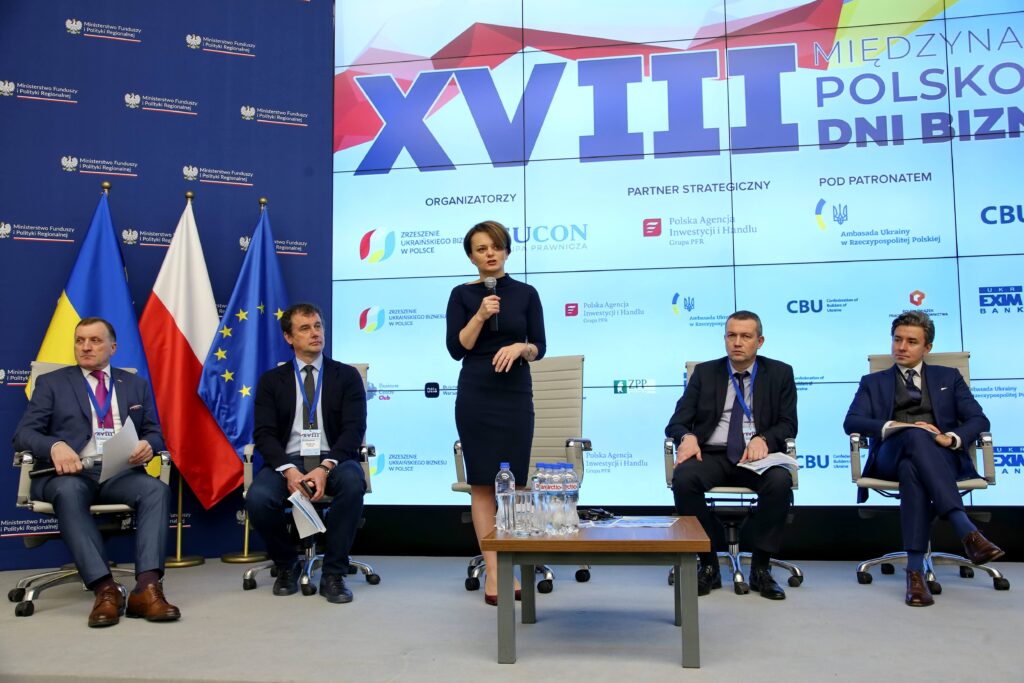
In turn, Jadwiga Emilewicz, Secretary of State, Government Plenipotentiary for Polish Ukrainian Development Cooperation, Ministry of Development Funds and Regional Policy of Poland, noted that she is optimistic about the future of Polish-Ukrainian business relations. “Polish-Ukrainian business relations, despite the war and all the difficulties, have never been as good as now after 89. Exports from Poland to Ukraine and from Ukraine to Poland have increased over the past year. This is an important proof that the Ukrainian economy is working despite the war and we see mutual economic and business benefits for both countries,” – Emilewicz emphasised.
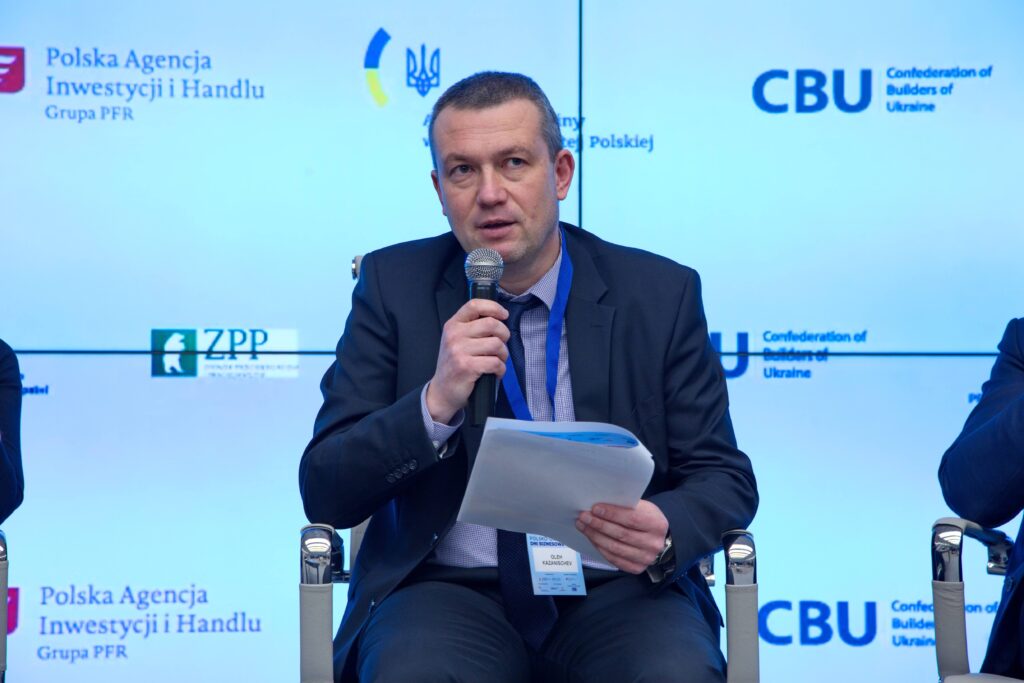
Oleh Kazanishchev, Counsellor at the Embassy of Ukraine in Poland, added that regardless of the current situation between Ukraine and Poland, Ukrainian-Polish cooperation has not stopped, it is developing, which is proved by numbers and economic indicators.
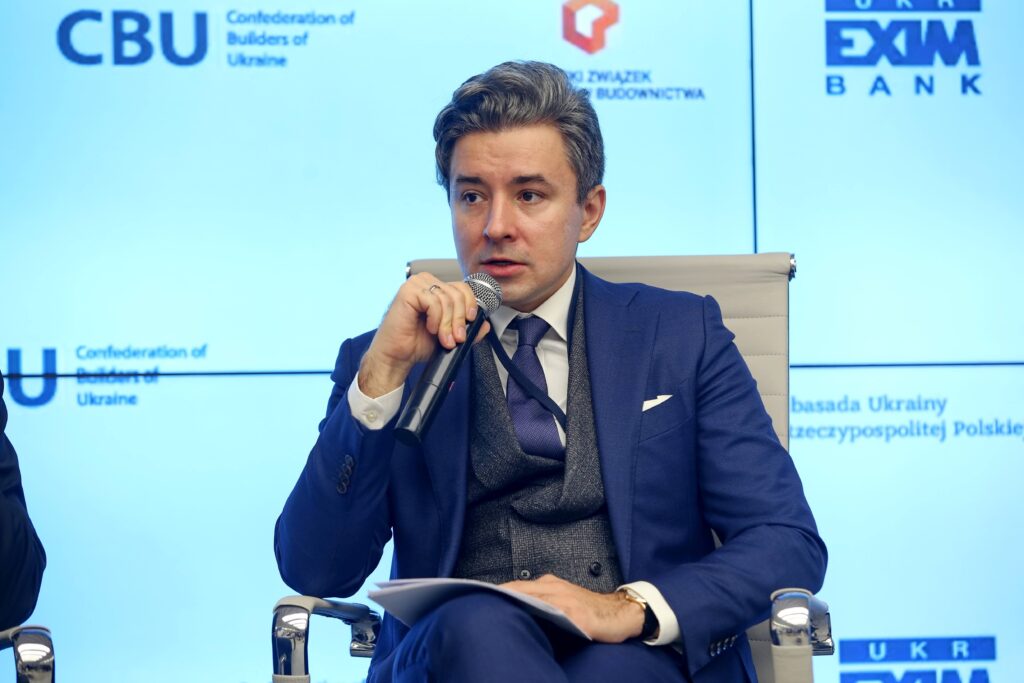
Aleksander Siemaszko, Deputy Director, Department for International Cooperation and Trade, Ministry of Development and Technology, pointed out that the partnership between Ukraine and Poland has a strategic character. “We have always supported Ukraine’s integration into the European Union. There is no other way to the EU than through Poland, because there is no strong Poland without a sovereign Ukraine.” – Mr Siemaszko emphasised.
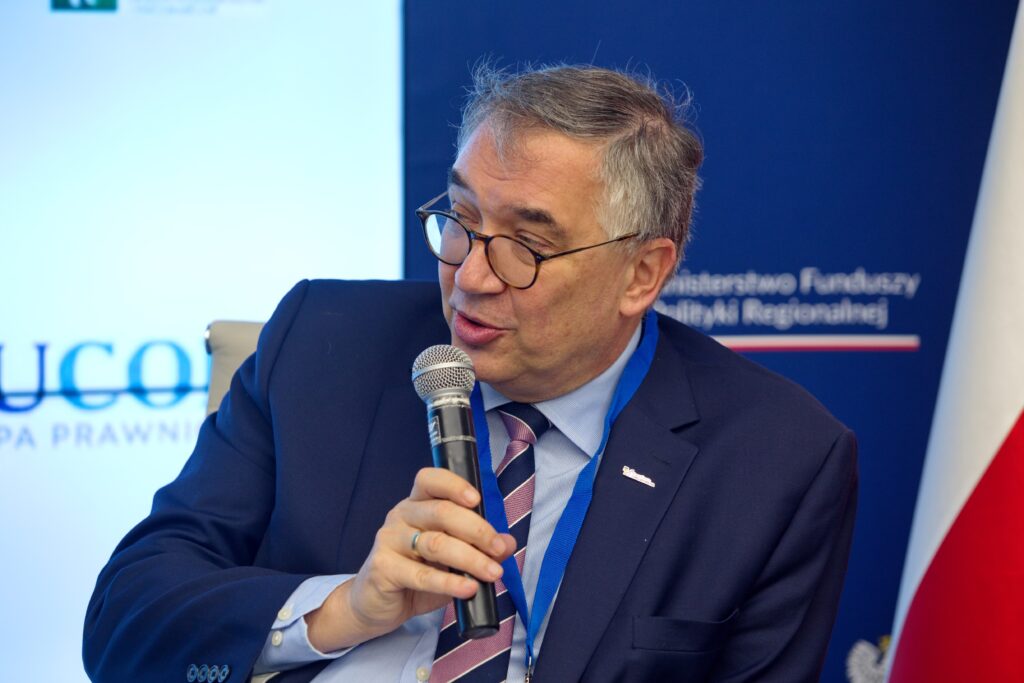
In turn, Roman Vashchuk, Ombudsman for Entrepreneurs in Ukraine, noted that Ukraine is moving forward and entering an excise period in which it is important not only to adopt extremely attractive European regulations, but also to actually implement them.
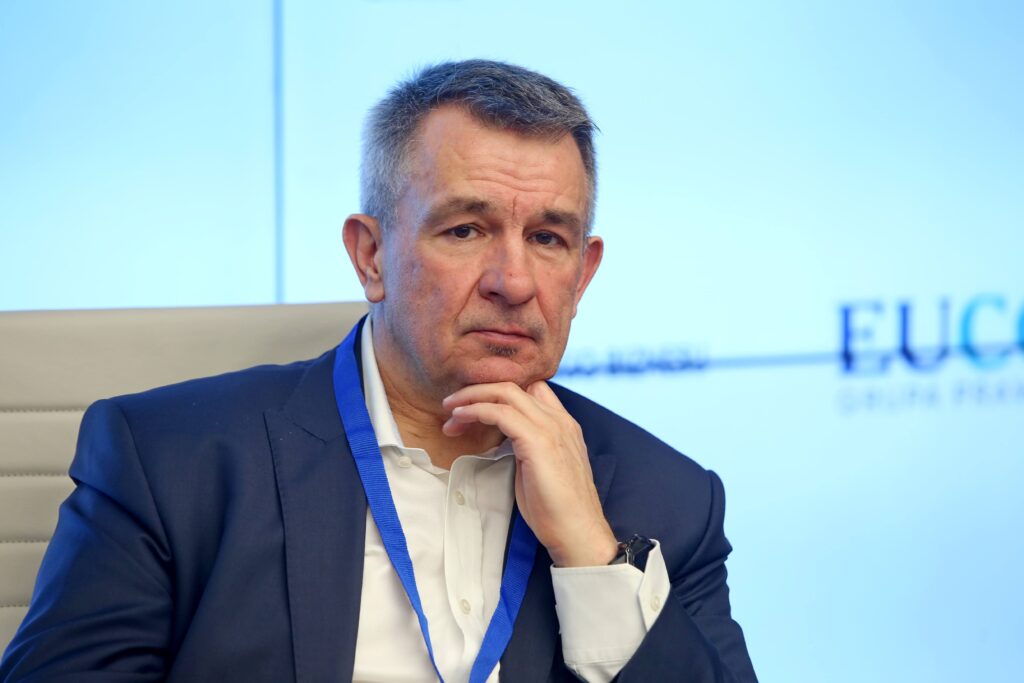
The importance of Polish-Ukrainian cooperation in the context of the exchange of experience was mentioned by Grzegorz Oszast, Member of the Management Board of PAIH S.A.. Mr Grzegorz pointed out that Ukraine, already on its way to the European Union, needs to learn project management and suggested organising workshops with Polish entrepreneurs in order to exchange experience and cooperating with governmental organisations in order to learn project management.
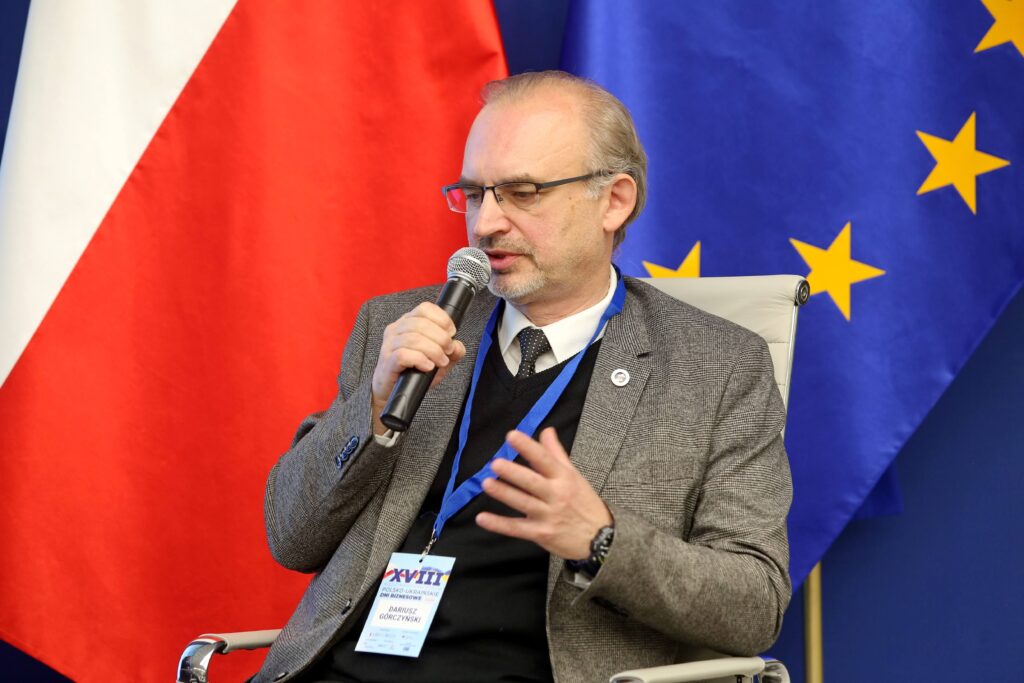
Board member of the International Association of Polish Entrepreneurs in Ukraine, Dariusz Górczynski, noted the tendency to expand Polish-Ukrainian cooperation, especially in terms of cooperation between Polish and Ukrainian businesses in the context of mutual benefits.
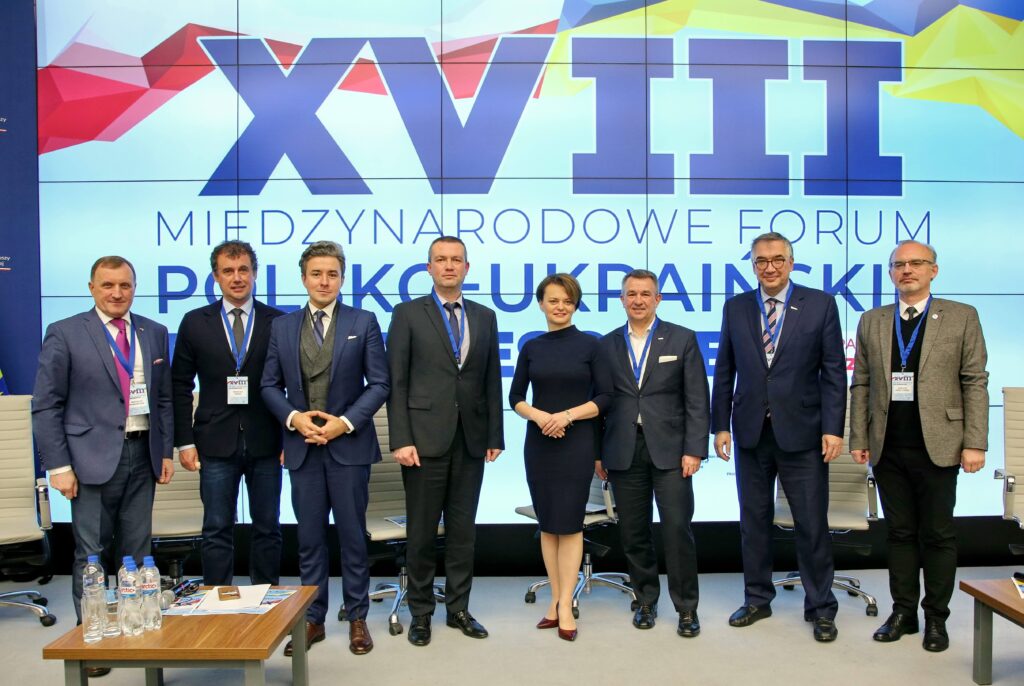
The second panel discussion of the event was focused on opportunities, possibilities and challenges for Polish-Korean-Ukrainian consortia during the realisation of construction and infrastructure projects in Ukraine.
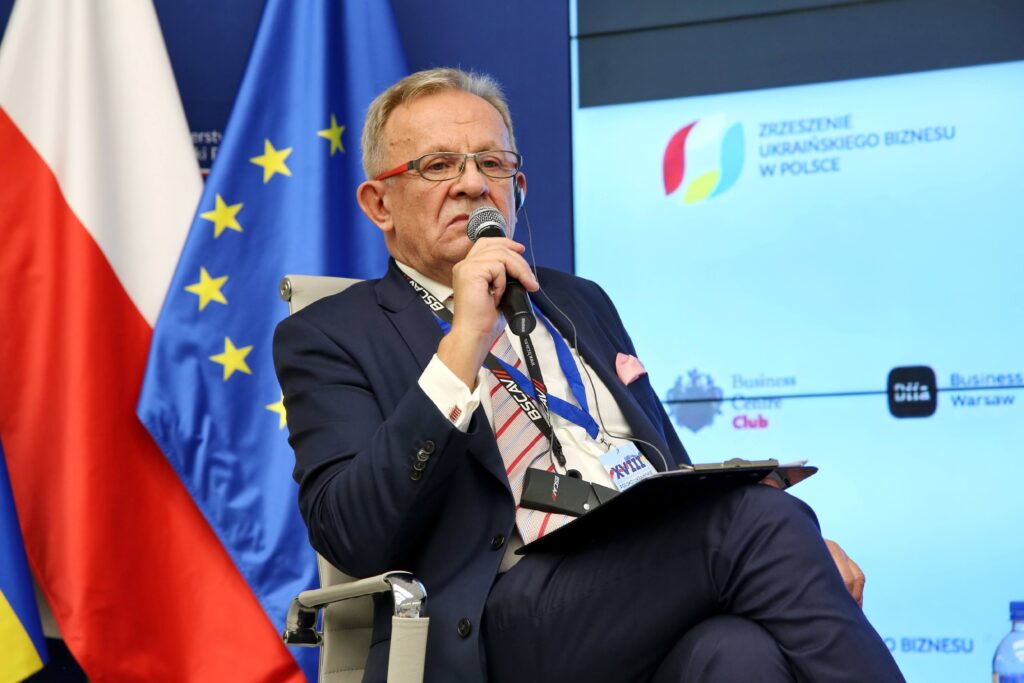
The panel moderator, Konrad Wyrwas, Director of Development Strategy and Public Relations, Polish Association of Construction Industry Employers (PZPB), opened the panel by introducing all the speakers.
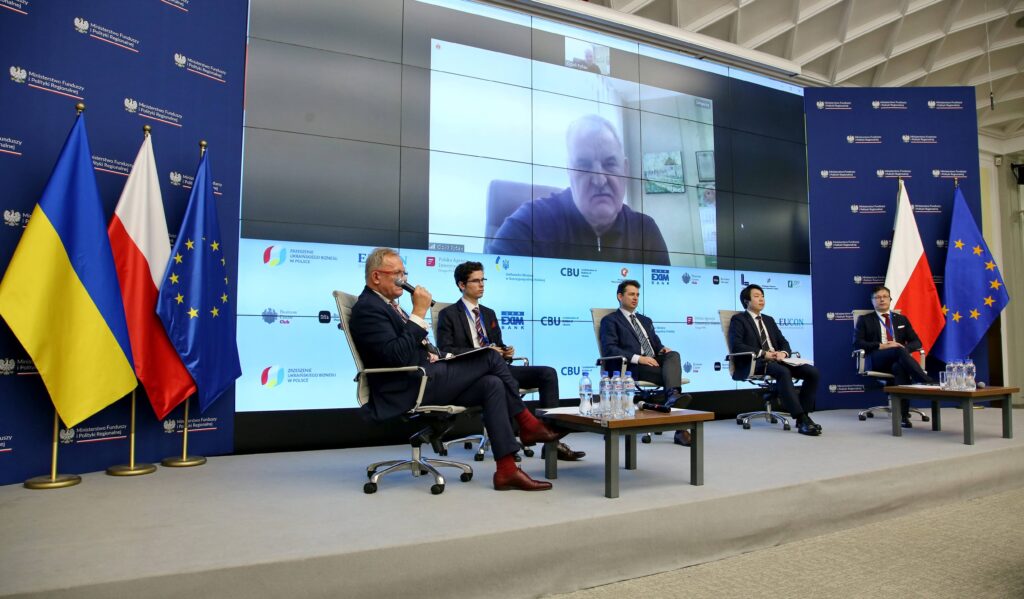
Among the problems of the construction industry in Ukraine, Yurii Ruban, President, Guild of Designers in Construction, Ukraine, mentioned the lack of personnel, namely highly qualified design engineers who could quickly implement projects for the reconstruction of Ukraine. There is also a lack of appropriate construction machinery and equipment needed to rebuild water pipes, roads, bridges, the energy system, etc. “Today, the task is not only reconstruction, we want to modernise our economy in the reconstruction process, namely: not to rebuild what was built in the 1960s and 1970s, but to build practically everything new, everything from scratch and everything progressive,” Ruban said at the end of his speech.
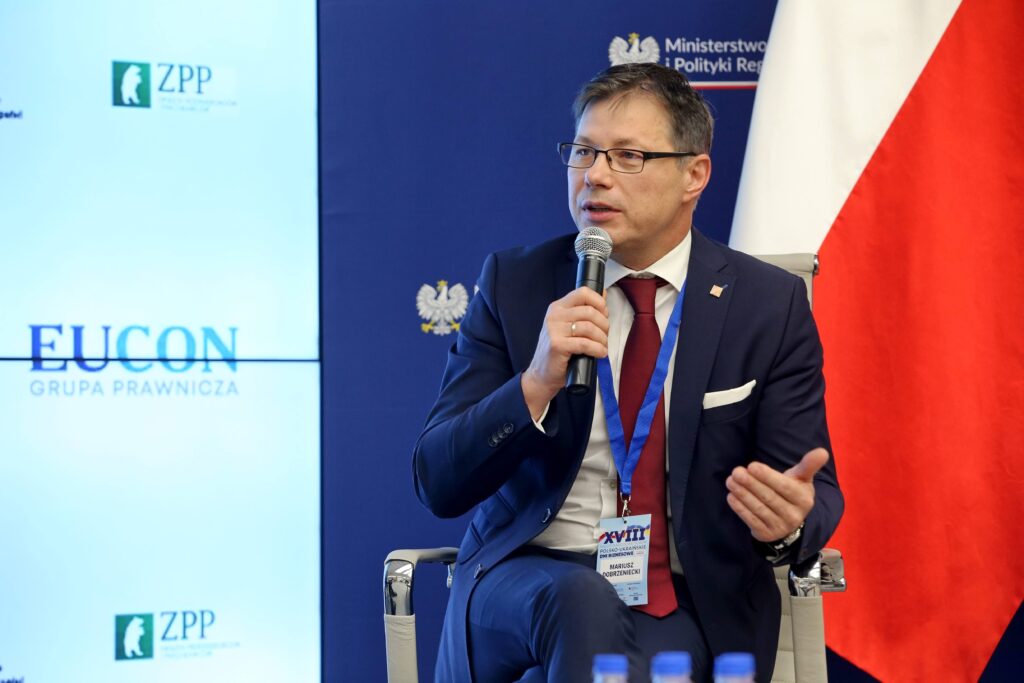
Mariusz Dobrzeniecki, Chairman of the National Council, Polish Chamber of Civil Engineers, talked about the problems related to the recognition of the qualifications of Ukrainian engineers in Poland, in particular due to the language barrier and the differences in legislation between Ukraine and the European Union. At the same time, Mr Dobrzeniecki noted that he knows successful examples of Polish engineers working in Ukraine and expressed his hope for further improvement of cooperation.
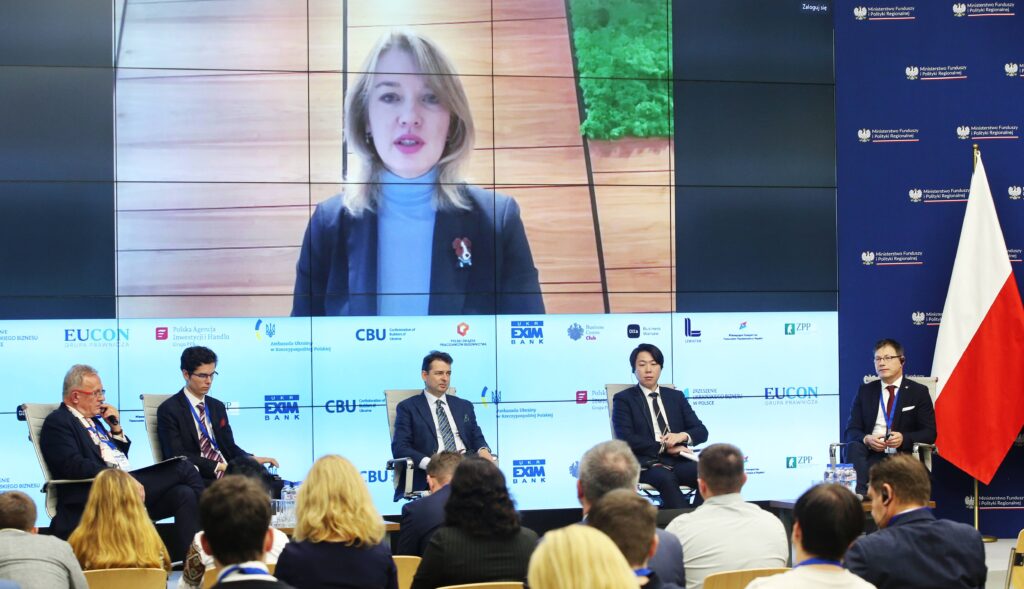
Olena Shulyak, Deputy, Chairperson of the Coordinating Council for solving problematic issues in urban planning to the President of Ukraine, talked about the legislative changes that have been introduced in Ukraine and should contribute to the fastest possible economic development. Ms Shulyak said that Ukraine has approved a law on industrial parks, which defines the relevant areas where industrial parks can find their application.In particular, this includes processing activities, information technology and scientific research. “Industrial parks benefit from various customs and tax concessions. For example, companies are exempted from paying income tax for 10 years. As of 1 October, there were 65 industrial parks in Ukraine, 48 of them have been identified as management companies and 19 are already resident,” – Shulyak pointed out.
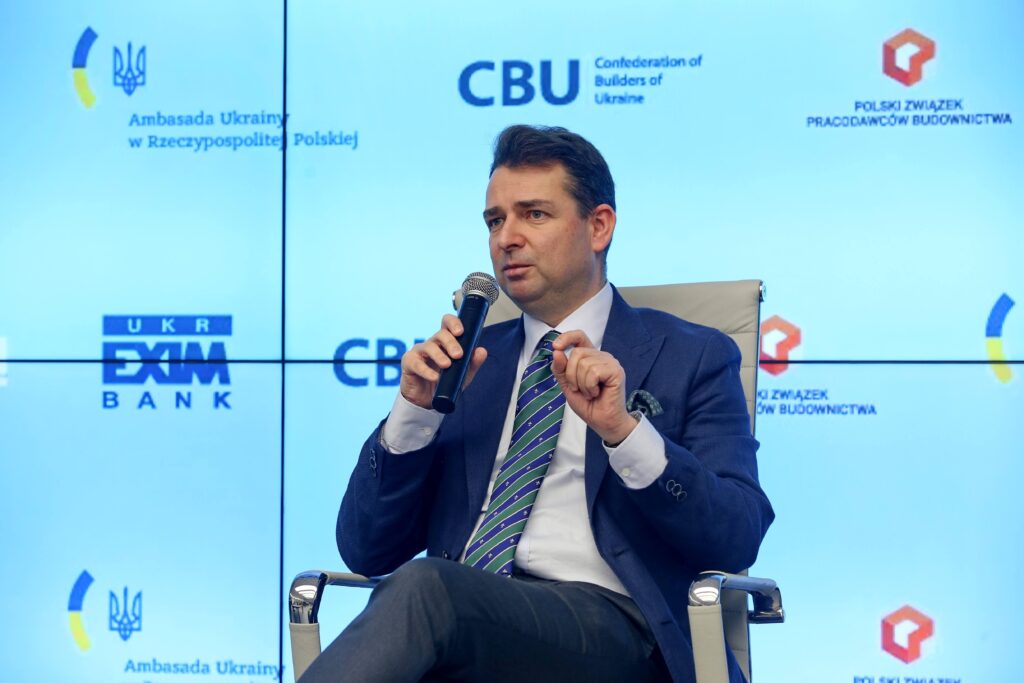
In turn, Jan Styliński, President of the Management Board of the Polish Association of Construction Industry Employers, assessed the readiness of Polish companies to participate in the big reconstruction of Ukraine. He noted that Poland has great potential in the construction industry, in particular Polish construction companies can handle projects from initial design to warranty service, they have a lot of experience in the construction of infrastructure projects, moreover Poland is a leader in Europe in the production of construction materials. “At the same time, there are a lot of risks for Polish construction companies, which need to be considered and assessed before joining a project,” – Styliński said.
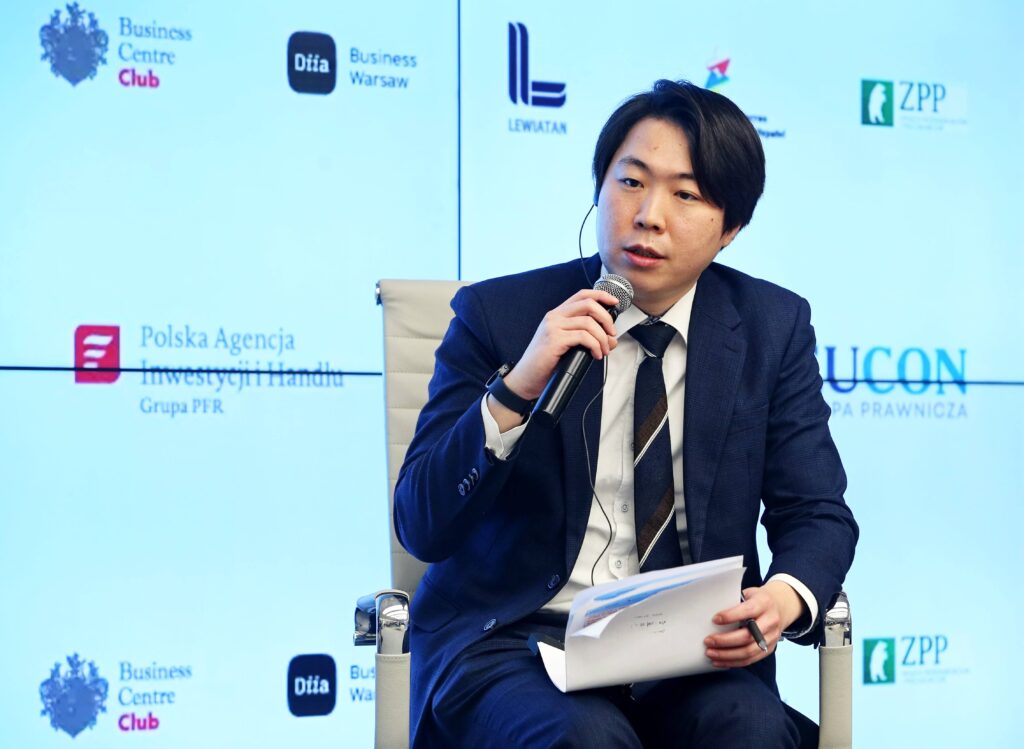
Kangsoo Kwon, Second Secretary, Embassy of the Republic of Korea in Poland, talked about Korea providing support and being interested in participating in reconstruction projects in Ukraine. “Our government is actively involved in the reconstruction of Ukraine, and Poland is an important partner for us in this area. A number of documents on cooperation on Ukraine have been signed between our countries.” – Kwon emphasised
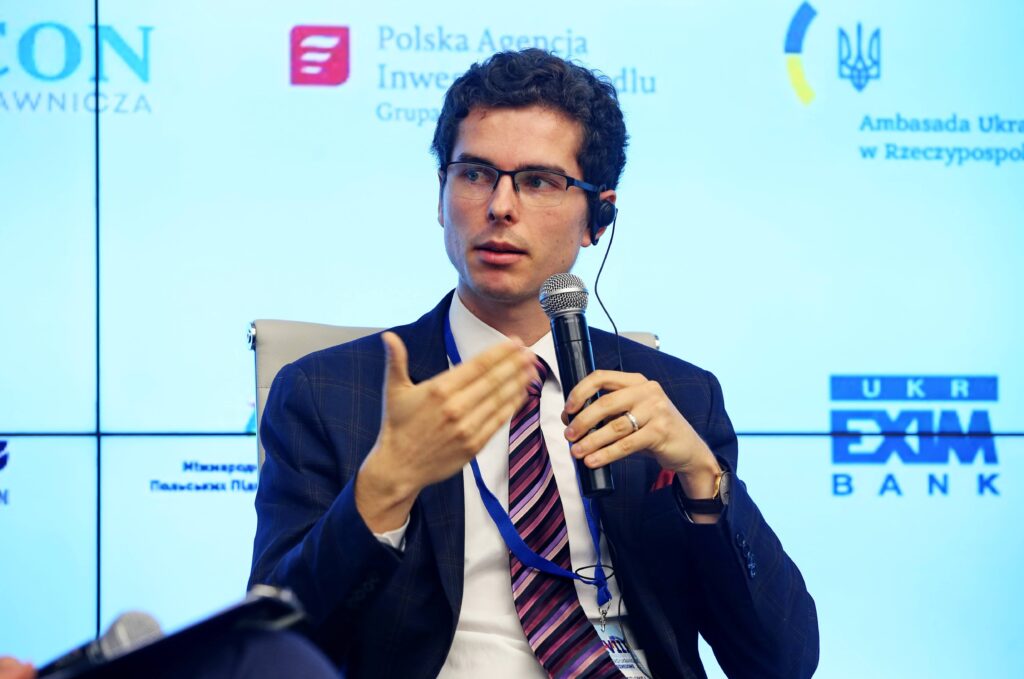
Bartłomiej Baran, Deputy Director of Department, Department of Architecture, Construction and Geodesy, Ministry of Development and Technology of the Republic of Poland, during his speech expressed his conviction to support Ukraine in its reconstruction. He noted that a platform for mutual cooperation between Ukraine and Poland was initiated last year. Informal consultations with Ukrainian architects and meetings with representatives of other countries have also taken place, which demonstrates Poland’s readiness to help Ukraine in this process.
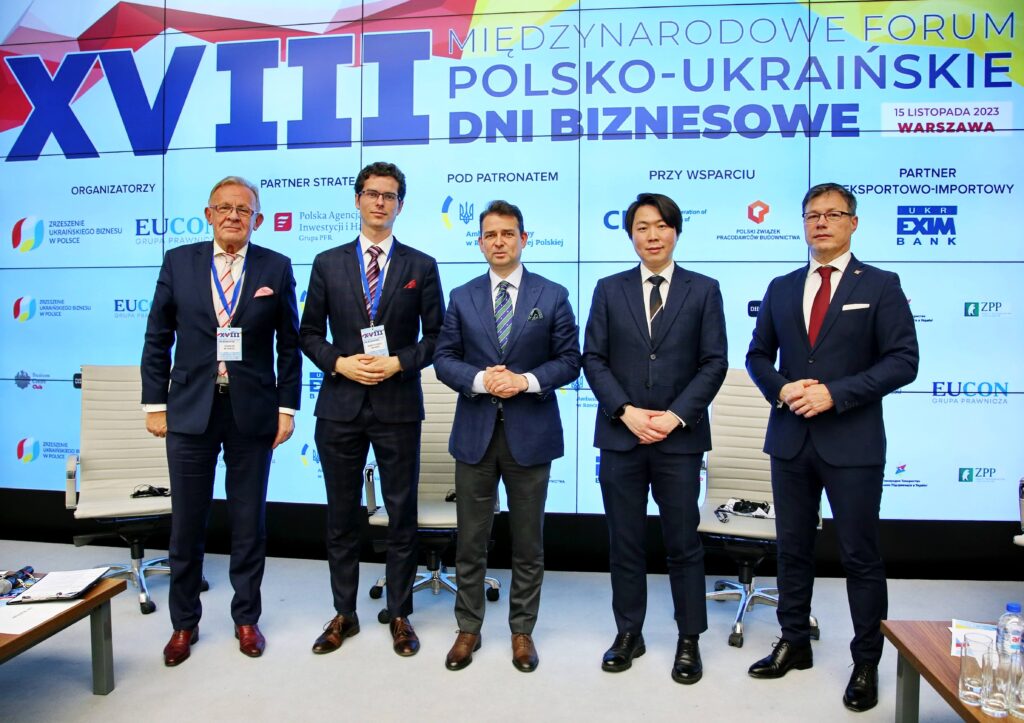
During the third discussion panel, participants discussed the scale of destruction in Ukraine’s regions, their reconstruction needs and opportunities. Particular attention was focused on Poland’s potential to become a key transport hub in the reconstruction process.
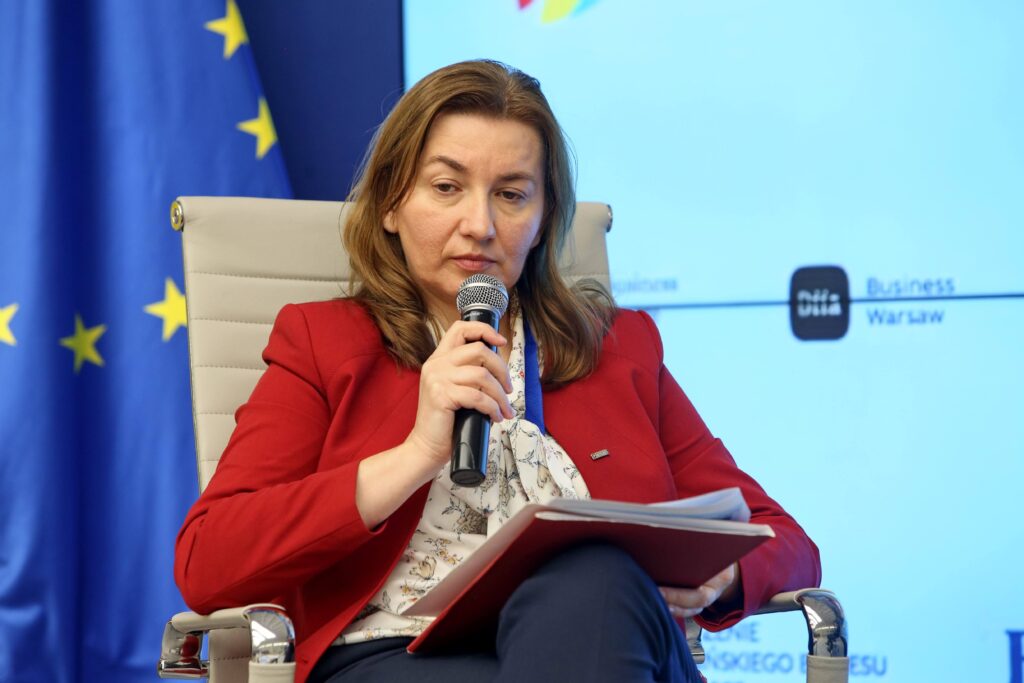
The moderator of the third discussion panel, Tetiana Chuzha, Business Development Manager of the Foreign Trade Office in Kyiv, Polish Investment and Trade Agency (PAIH), while opening the panel said that the forum has already become a traditional platform for the exchange of views and opinions, as well as a field for the development of new solutions and models of Polish-Ukrainian cooperation and is important for the development of Polish-Ukrainian economic relations.
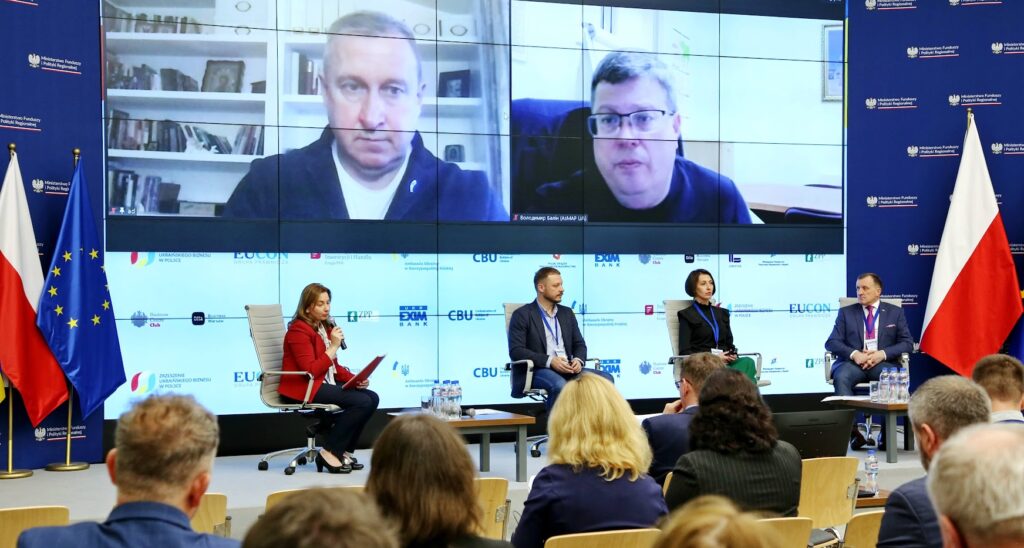
According to Andrii Deshchytsia, Chairman of the Board, AAD Consult, Ambassador Extraordinary and Plenipotentiary of Ukraine to Poland, the first priority in the reconstruction of Ukraine is the reconstruction of housing stock, followed by the reconstruction of infrastructure and social buildings. “At the beginning of the year, according to various estimates, the number of buildings in need of reconstruction was about 150, thousand, but it is very difficult to assess the scale of housing stock reconstruction, because the shelling of Ukrainian villages continues every day,” – Mr Deshchytsia emphasised.
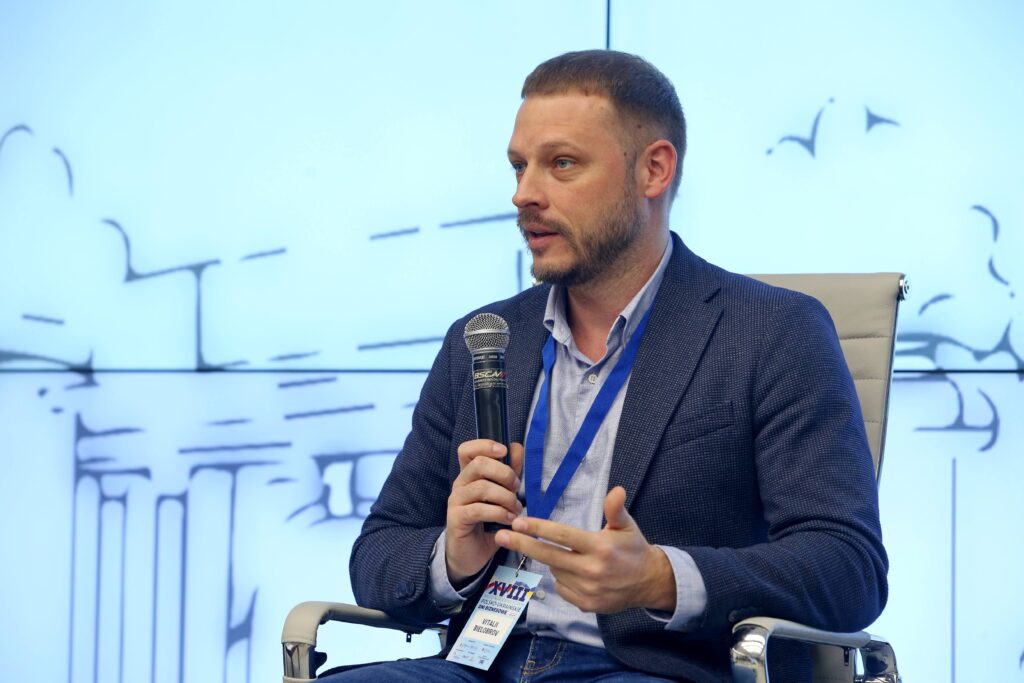
Vitalii Bielobrov, Deputy Chairman of the Kherson City Council, told participants about the reconstruction plan for communities in the Kherson region: “Firstly, we have developed a community reconstruction plan, which includes 38 projects. Secondly, we are preparing project teams and project managers to implement these projects, and thirdly, we are creating sites such as industrial parks to bring back relocated companies and attract new ones, including Polish ones. We are working to create the conditions for creation of new jobs so that people have a place to come back to.”
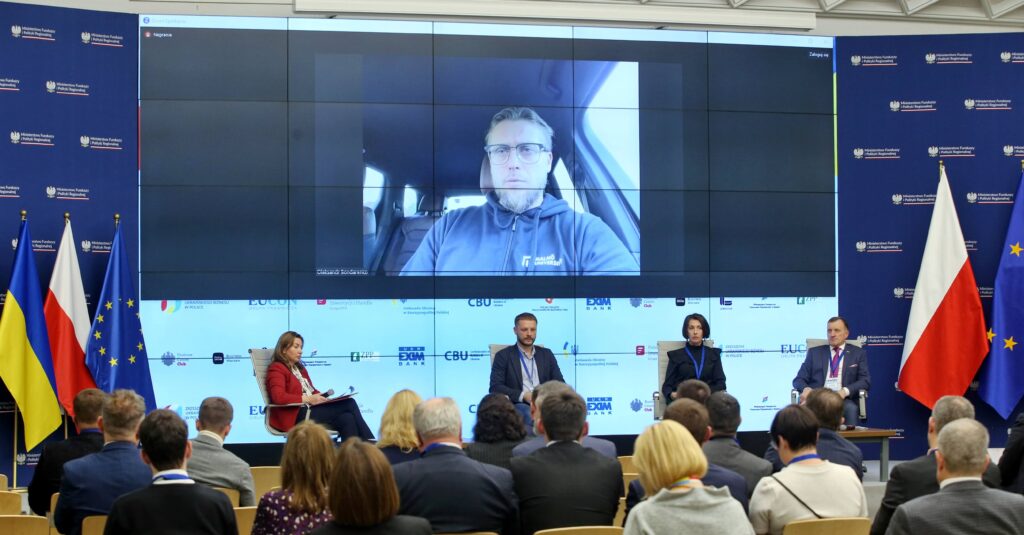
Oleksandr Bondarenko, Deputy to the Dnieper Regional Council, Member of the Supervisory Board of the European Integration Office, shared his experience in attracting Polish investments to the region. The speaker said that there are two registered industrial parks in the Dnipropetrovsk region, but so far they are only on paper and do not really work. He added that for the past 8 months he and his team have been negotiating with three Polish companies who are interested in entering Ukraine, but potential investors are currently waiting for the conflict to be resolved, for the end of the war to be documented and for Ukraine to win.
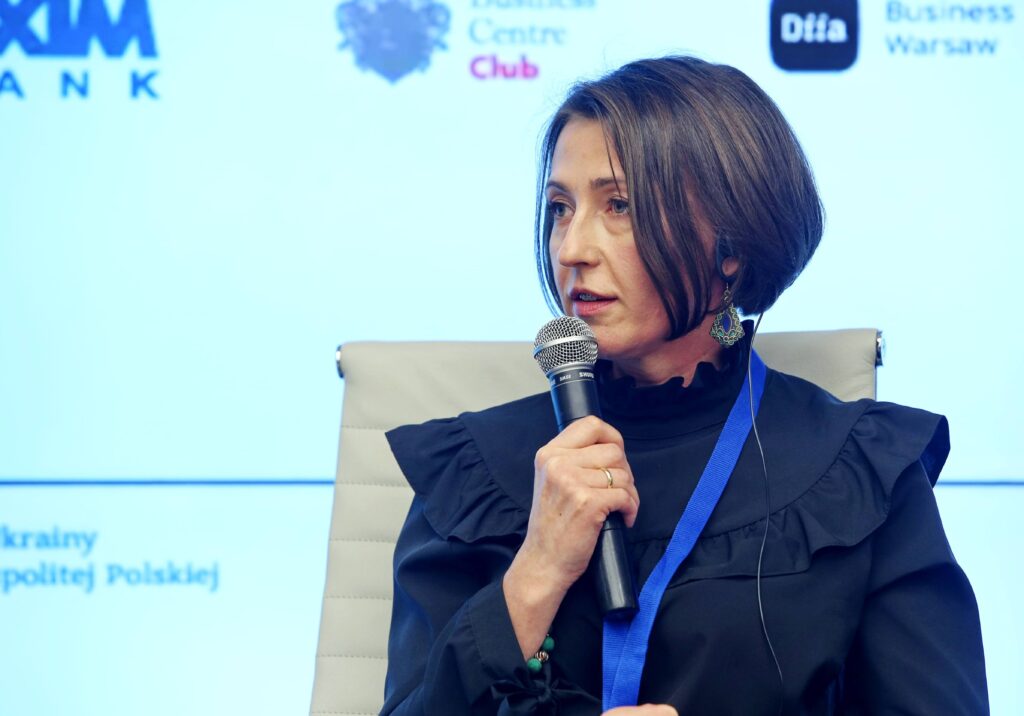
Bogusława Rudecka, Director of the Business for Ukraine Center project, Union of Entrepreneurs and Employers, in her speech pointed out that Polish business at this stage is still very cautious, conducting research and analysing the potential before making direct investments in Ukraine. “An important aspect is that 90% of the damage that needs to be rebuilt is in occupied territory. Until we work out a peace formula, there will be no bold moves by Polish business,” Ms Rudecka noted.
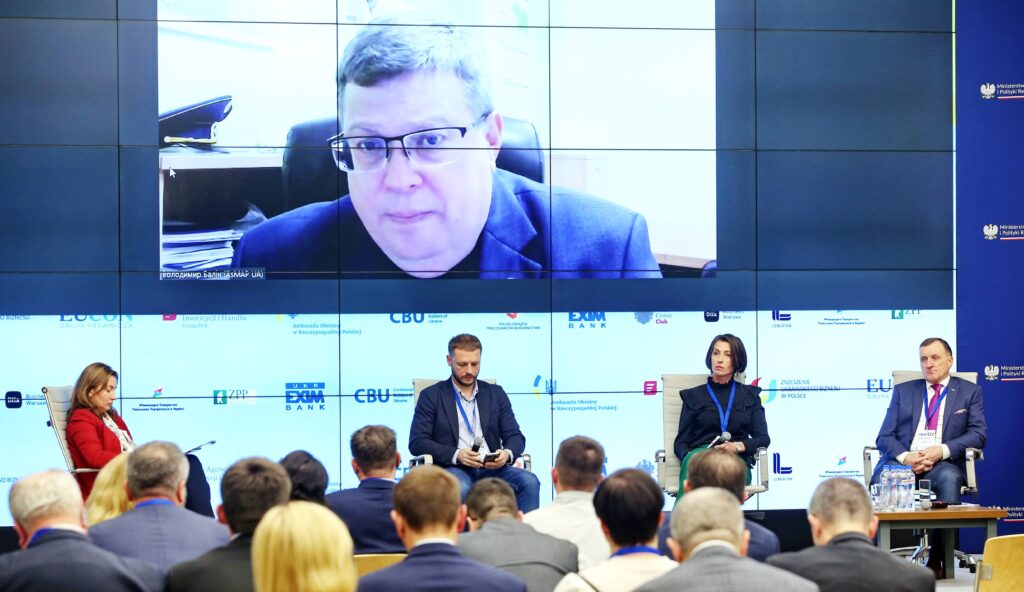
Volodymyr Balin, Vice PresidentPresident, Association of International Road Transport Carriers of Ukraine, spoke about the role of international road transport during the war. Mr Balin pointed out that during the year and a half of the war, some measures have been taken to improve the situation at the borders, but this is not enough. The speaker also focused on the problems exacerbated today at checkpoints due to the strike by Polish hauliers, highlighting their illegality and the need to resolve the situation. “Our first priority is to win, and then we need to rebuild Ukraine’s economy and infrastructure, and this will require the development of the transport market. And we, as international hauliers of Ukraine, are already consciously ready for the transport market to reorient to Polish control requirements,” – Balin said.
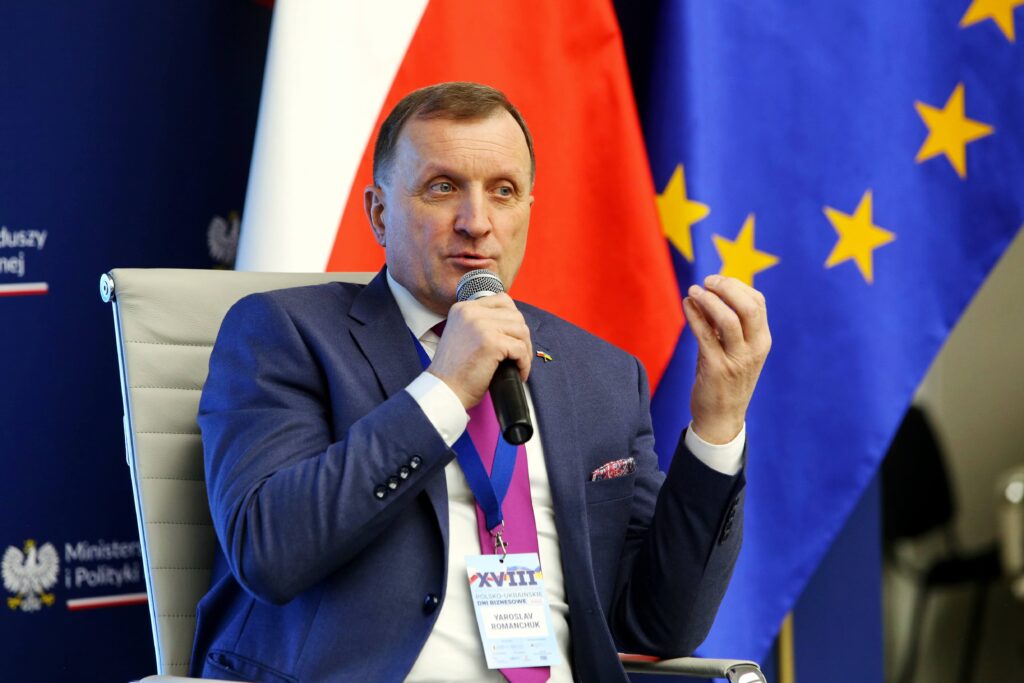
Yaroslav Romanchuk, President of the Management Board of the Ukrainian Business Association in Poland, Managing Partner of EUCON Legal Group, in his speech pointed out that in 2015, on the initiative of the Association of Ukrainian Business in Poland and with the support of the Embassy of Ukraine in Poland, the Ukrainian Business Hub was established – a centre where Ukrainian entrepreneurs can receive a range of services related to relocation to Poland in one place. “If before the full-scale invasion we had 120 relocations, now there are more than 350. On the one hand this is not very good for the Ukrainian economy, but on the other hand it is a second life for Ukrainian business. The good news is that 95% of Ukrainian business currently located in Poland do not have plans to leave Ukraine,” – Mr Romanchuk noted.
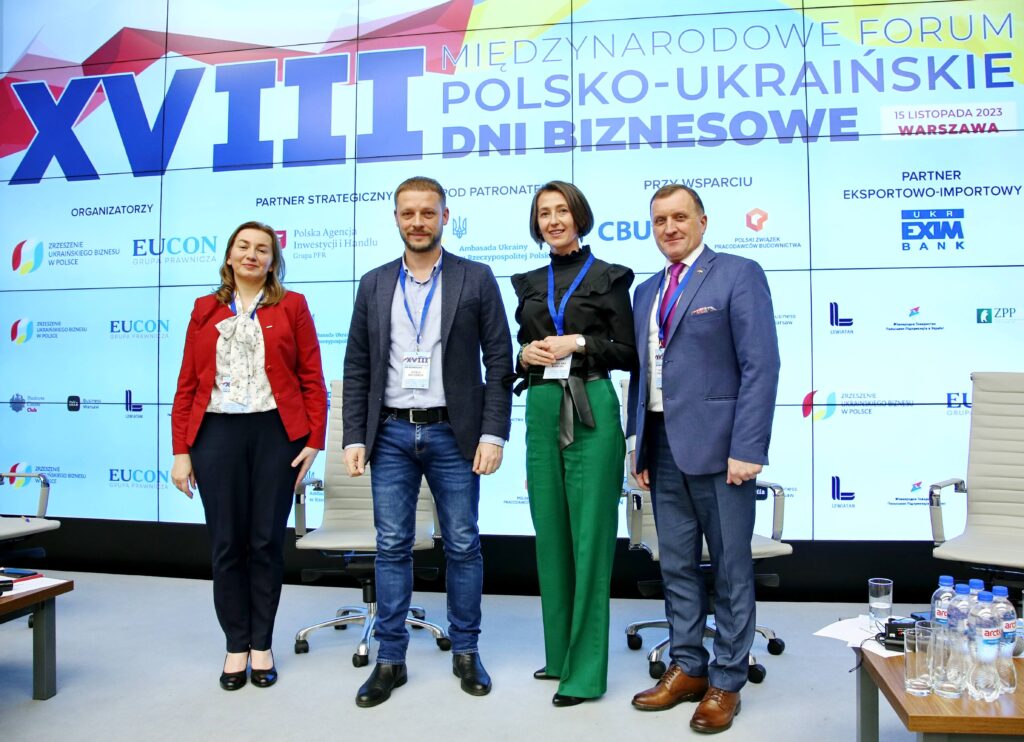
The last panel discussion of the forum was dedicated to financial instruments as economic drivers in the Ukrainian market.
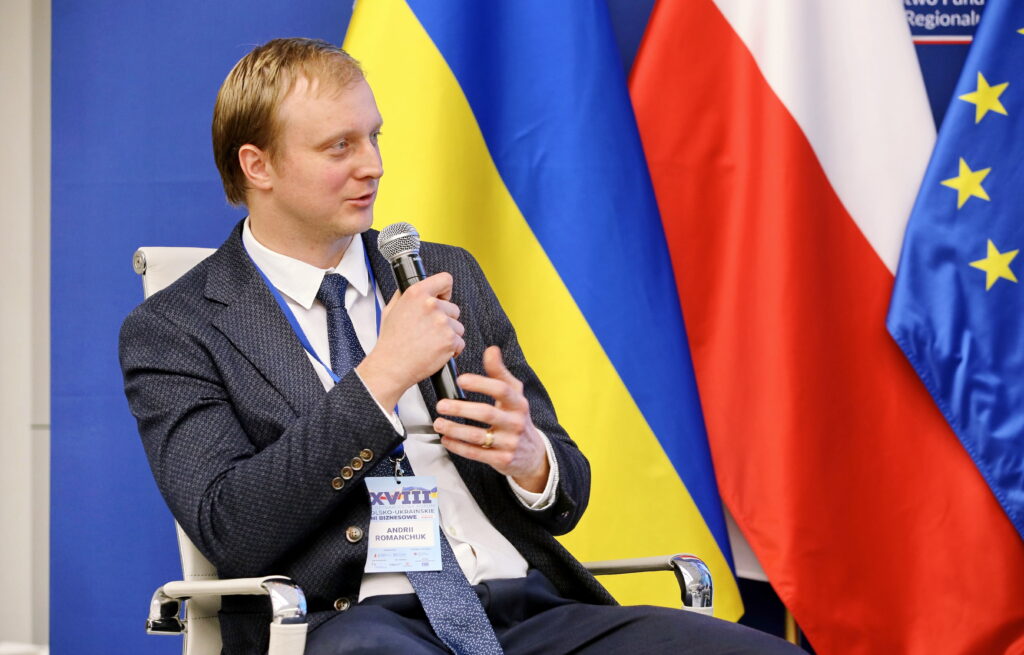
The moderator of the panel discussion, Andrii Romanchuk, Attorney at Law, Senior Partner, EUCON Legal Group, opened the panel by drawing attention to the importance of the role of financial instruments in supporting the country’s economy and the private sector.
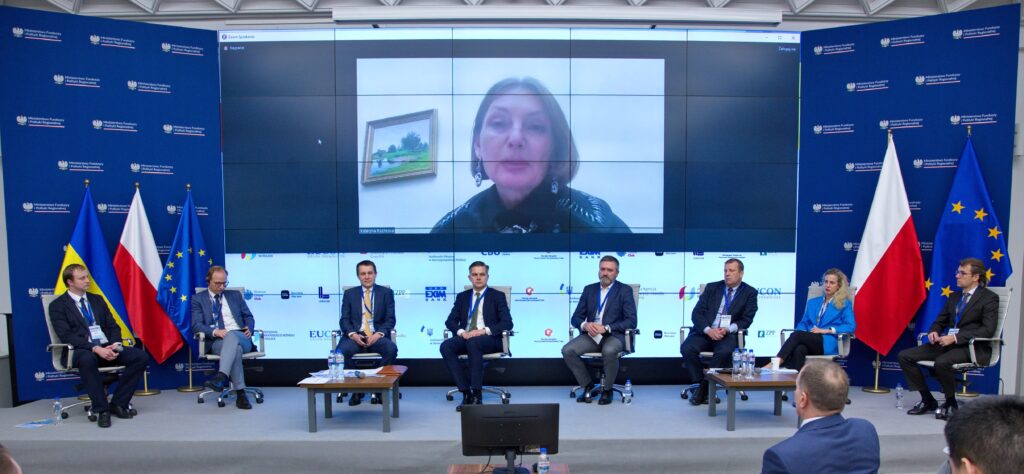
Kateryna Rozhkova, First Deputy Governor of the National Bank of Ukraine, spoke about the challenges faced by Ukraine’s banking system at the beginning of the war and how it managed to survive and stabilise the situation. Ms Rozhkova noted that thanks to the reforms introduced in previous years, the banking sector had demonstrated its readiness to work under emergency conditions and was now, despite the war, doing relatively well. “Thanks to the fact that the banks’ operations have not been halted, we have managed to avoid an outflow of funds from the banking system. On the contrary, one can see that since the full-scale invasion, household funds, funds in business accounts and in the banking system have continued to grow. The ample liquidity has allowed the banking system to invest these funds in sufficiently profitable instruments, and thus earn significant interest income,” Ms Rozhkova said.
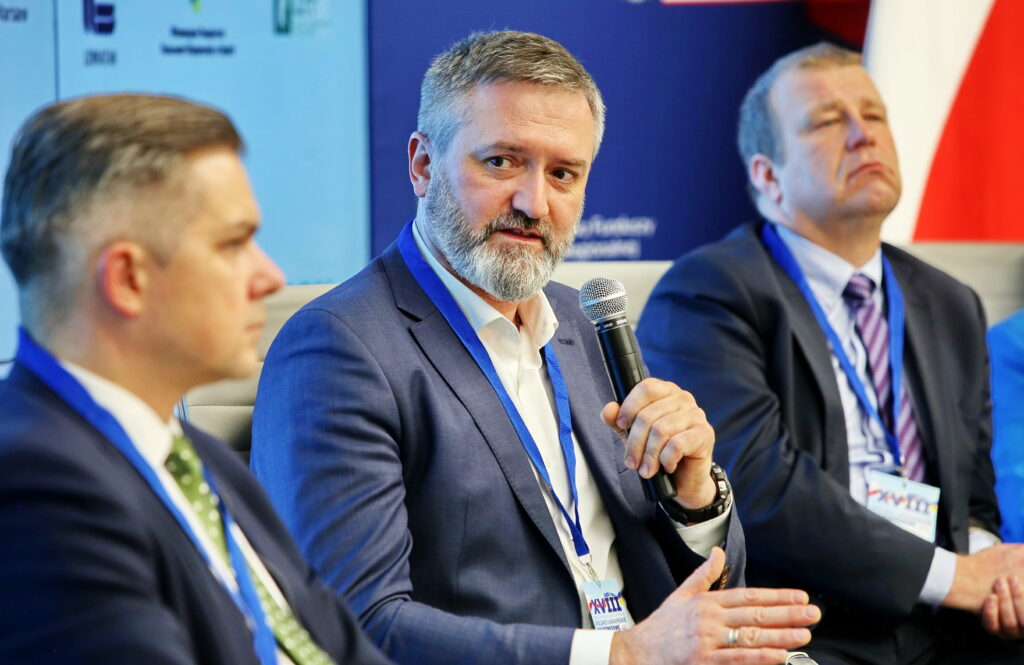
Sviatoslav Kuzmych, Director of the international business department, JSC Ukreximbank, talked about the tools and solutions offered by JSC Ukreximbank for business in 2023. The speaker noted that the main objective of JSC Ukreximbank is to provide credit to businesses. In particular, he noted that short-term projects include hryvnia financing with government participation. Medium and long-term financing involves cooperation with international financial organisations and partners. “Most of the funds that international financial organisations channel to the Ukrainian financial sector go through our bank. We won this right for ourselves and for more than 20 years our bank has been a partner of all major international financial organisations” – Mr Kuzmych added.
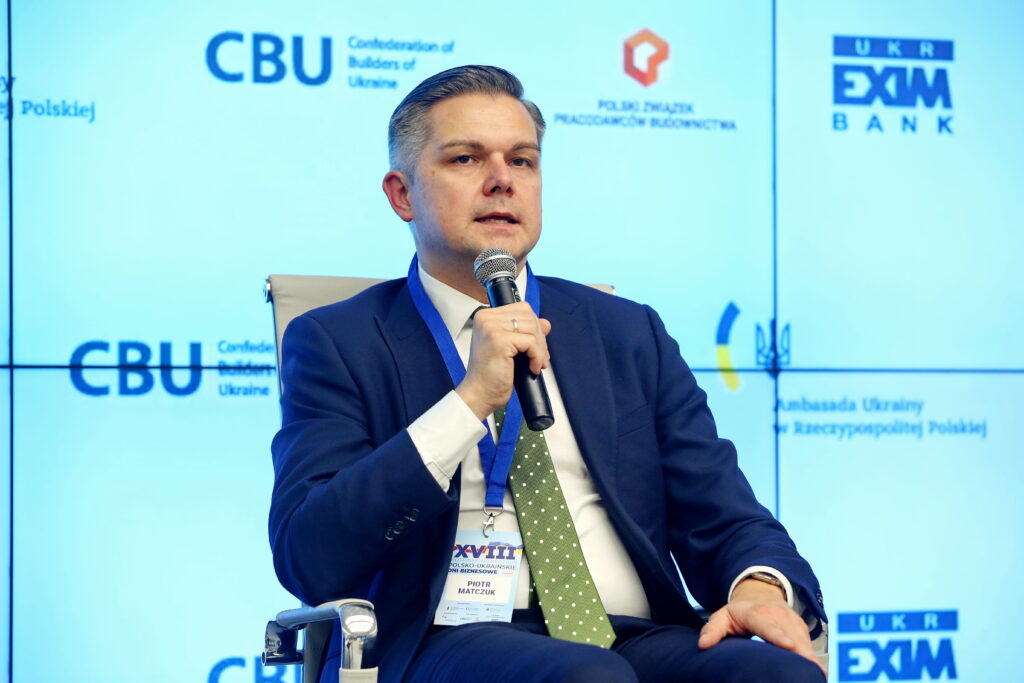
Piotr Matczuk, Director of the IFC Office in Poland, pointed out that the IFC’s main task is to support the private sector. According to him, this support includes not only financial assistance, but also the minimisation of all possible risks. In his speech, he pointed out that the role of the private sector in the reconstruction process is to effectively mobilise funding and overcome the risks associated with the huge reconstruction needs.
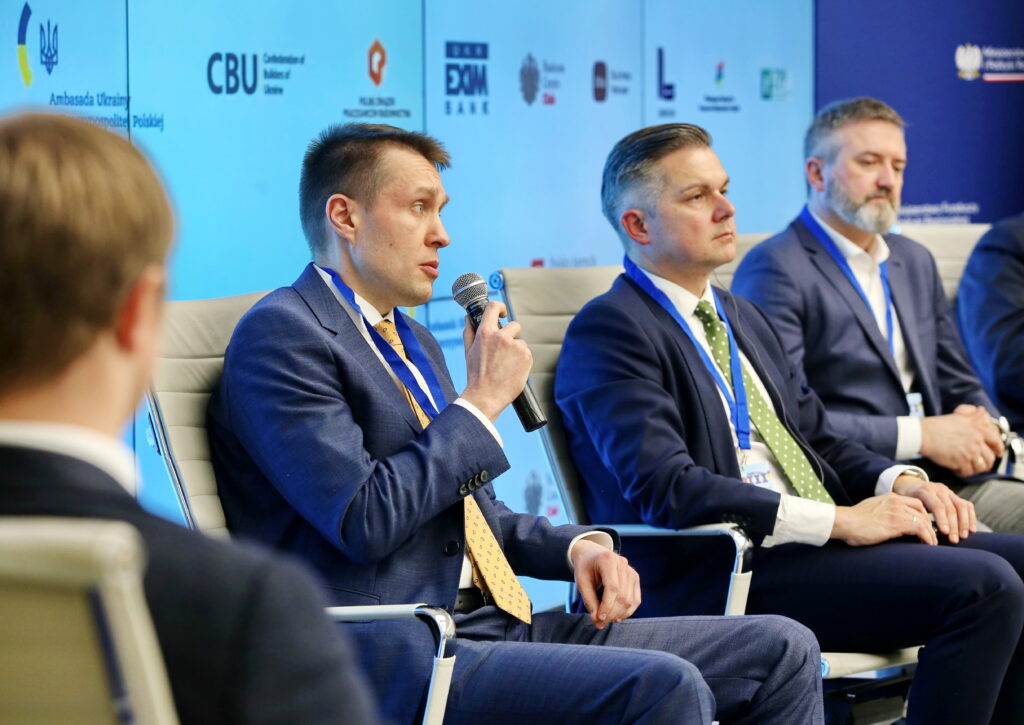
Andrii Tsokol, Associate Director , Infrastructure Europe, (EBRD), briefed the participants on the support provided to the Ukrainian economy after the outbreak of war. “In the first weeks of the war, we adopted a two-year programme of activities worth €3 billion for the period 2022-2023. To date, we have not only completed the planned tasks, we have exceeded them and are still actively working on their realisation. In particular, the €3 billion has been divided into five key areas: supporting the banking sector, ensuring energy security, guaranteeing food security, developing infrastructure and promoting private sector development,” – Tsokol said.
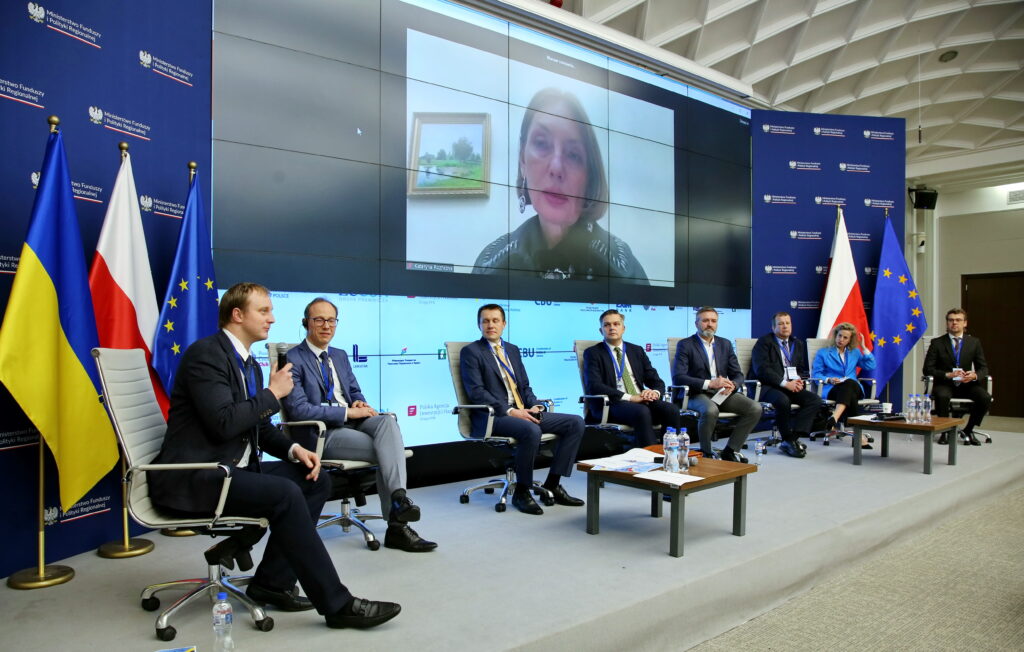
Also taking part in the panel discussion were Marek Ullman, Business Process Coordinator for the Reconstruction of Ukraine, Polish Bank Association, who discussed with the participants the possibilities of cooperation and involvement of the Polish banking sector in the process of Ukraine’s recovery; Luiza Bednarowska-Kopyść, Director of the Product Development Department, KUKE, who informed that during the year and a half of war their company was the only one in the world to offer insurance against the risk of non-payment; Mateusz Walewski, Director of Research and Analysis, BGK, pointed out that BGK, despite the difficult period, does not stop its export and investment activities in Ukraine, and assured of the Bank’s deep interest in supporting Ukraine even in the conditions of armed conflict; Dmitry Kushnerov, Expert on Export Finance, BANK PEKAO S.A., in his speech stressed the need to support exports to Ukraine. And, in his speech, he emphasised the need for fast development of the Ukrainian economy in the context of European standards and expressed his wish for Ukraine to join the European Union as soon as possible, noting the benefits of such membership and its impact on economic development.
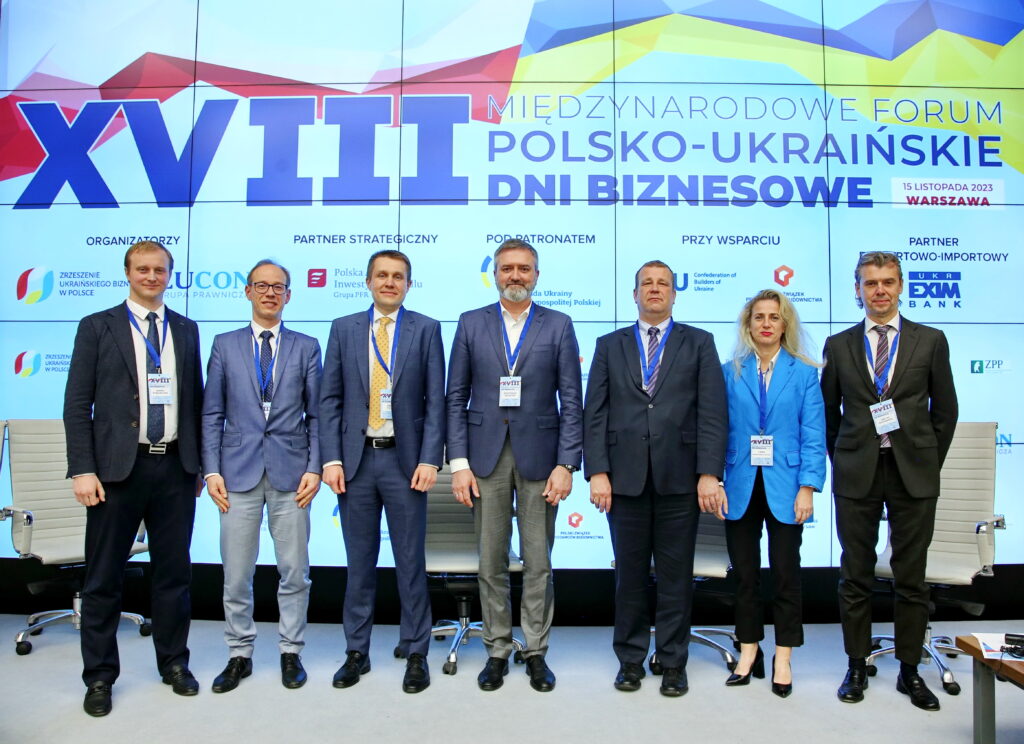
Thank you very much to all our partners, your support was a key factor in the success of our forum.
Organisers: Ukrainian Business in Association Poland and EUCON Legal Group.
Strategic partner: Polish Agency for Investment and Trade – PAIH
Under the patronage of: Embassy of Ukraine in the Republic of Poland
With the support of: Confederation of Builders of Ukraine ; Polski Związek Pracodawców Budownictwa (PZPB).
Export and import partner: АJSC Ukreximban.
Інформаційні партнери:International Association of Polish Entrepreneurs in Ukraine; Diia.Business І Warsaw; Business Centre Club; Związek Przedsiębiorców i Pracodawców; Konfederacja Lewiatan.